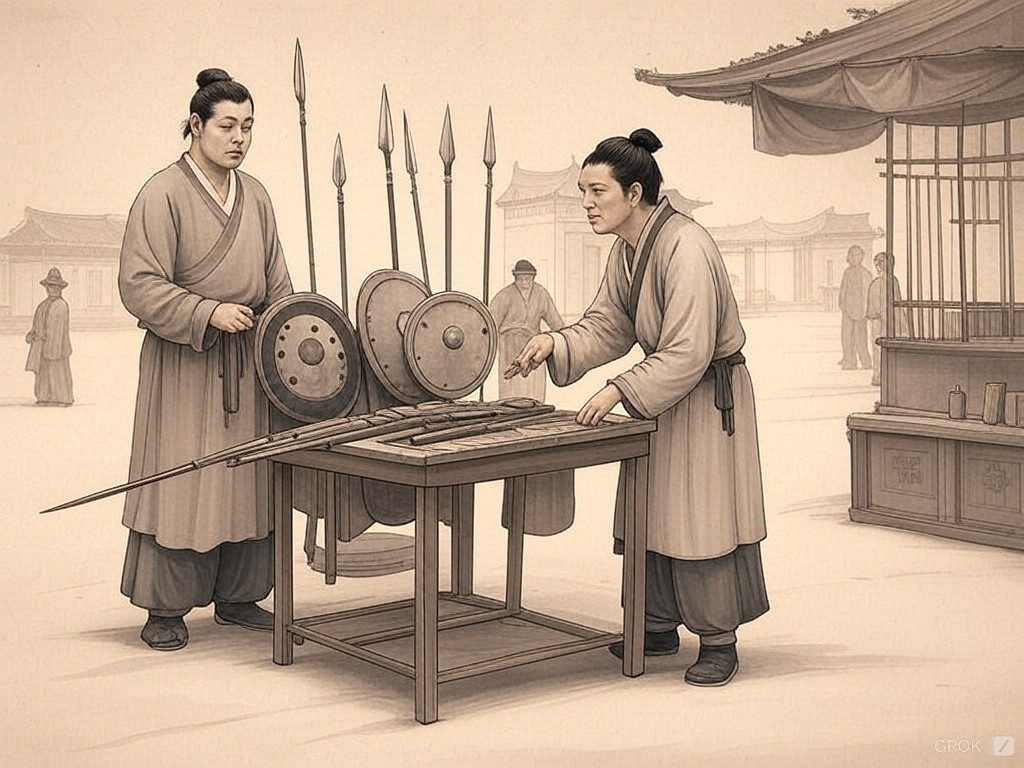"自相矛盾" (zì xiāng máo dùn) - Self-Contradictory

To contradict oneself; self-contradictory; logically inconsistent.
Origins and Historical Context
The idiom "自相矛盾" (zì xiāng máo dùn) comes from the Han Feizi (韩非子), specifically the chapter "Difficulties I" (难一).
The story goes: A man selling both shields and spears was trying to advertise his wares. He boasted that his shields were so strong that no spear could pierce them. He then boasted that his spears were so sharp that they could pierce any shield. Someone then asked him, "What if you use your spear to attack your shield?" The seller was speechless, as his own claims had contradicted each other.
This story vividly illustrates the problem of self-contradiction.
Meaning and Usage
"自相矛盾" literally translates to "self mutually spear shield." It means that one's words or actions contradict each other, creating a logical inconsistency. It is used to point out logical fallacies and inconsistencies in arguments or statements.
-
Example (Contradictory statements): “他一会儿说要节约开支,一会儿又大手大脚地花钱,真是自相矛盾。” (“Tā yīhuìr shuō yào jiéyuē kāizhī, yīhuìr yòu dàshǒudàjiǎo de huā qián, zhēnshi zì xiāng máo dùn.”) – “He says he wants to save money one minute, and then spends it lavishly the next. He is truly self-contradictory.”
-
Example (Inconsistent policies): “这项政策既要鼓励投资,又要限制外资进入,明显是自相矛盾。” (“Zhè xiàng zhèngcè jì yào gǔlì tóuzī, yòu yào xiànzhì wàizī jìnrù, míngxiǎn shì zì xiāng máo dùn.”) – “This policy both encourages investment and restricts foreign capital, which is clearly self-contradictory.”
Cultural Significance of Chéngyǔ (成语)
"自相矛盾" highlights the importance of:
- Logical Consistency: It emphasizes the need for coherence and consistency in one's arguments and actions.
- Critical Thinking: It encourages careful examination of statements and arguments to identify potential contradictions.
Synonyms and Related Concepts
- 出尔反尔 (chū ěr fǎn ěr): To go back on one's words; to contradict oneself.
- 言行不一 (yán xíng bù yī): Words and actions do not match; to be inconsistent in word and deed.